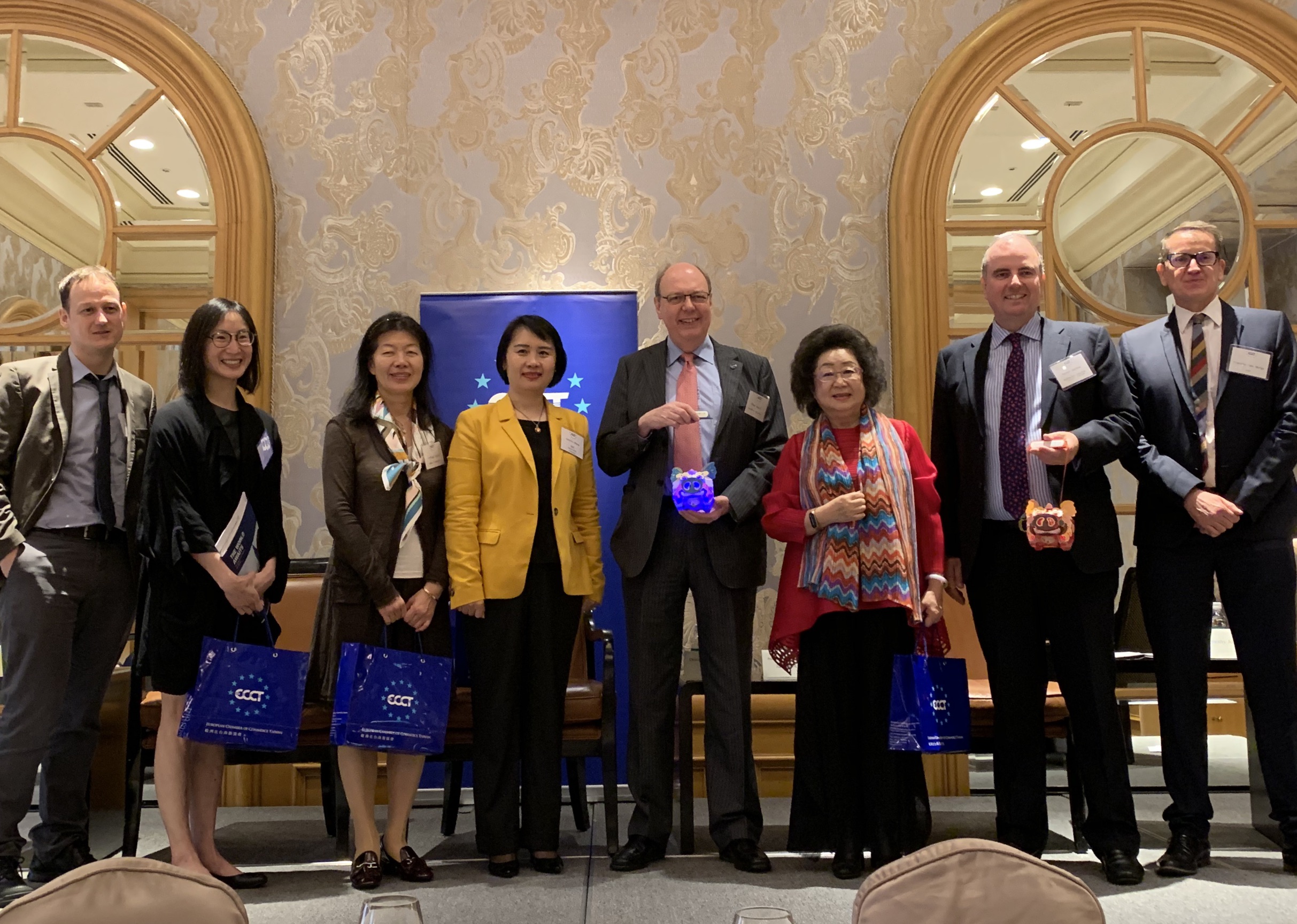Deputy Minister Fan Sun-Lu Delivers a Lunch Speech to ECCT Members on Bilingual Education Policy

The European Chamber of Commerce Taiwan (ECCT) invited the leaders from the Ministry of Education (MOE) and the National Development Council to a lunch meeting on February 19 to discuss “Goals and Challenges of Making the Republic of China a Bilingual Nation by 2030.” The Political Deputy Minister Fan Sun-Lu delivered a lunch speech on the bilingual education policy and exchanged opinions on related issues with ECCT members.
In order to enhance the overall national competitiveness, the Executive Yuan announced the policy titled the “Blueprint for Developing the Republic of China into a Bilingual Nation by 2030” in December of 2018. The Ministry of Education promotes Bilingual Education with the goal of "implementing full-scale bilingualization of the Republic of China’s educational system and to cultivate bilingual talents to bring the Republic of China to the world." In the future, MOE will alter concrete English teaching methods in schools through listening and speaking practice, helping students to be comfortable making mistakes, and through strengthening daily use. We will cultivate our children and their ability to apply English to their daily lives, and thus develop their competitiveness in their future workplaces.
MOE provides subsidies for teacher training universities to establish teacher education research centers for teaching subjects in English, and to host teacher education training courses for teaching subjects in English for in-service and pre-service teachers. MOE has also set up an educational information platform, entitled Education Cloud, to integrate a variety of educational content and services. In combination with the analysis of learner data and personalized services, a special section will exclusively be designated for learning English. Lastly, innovative technologies such as AR and AI will also be incorporated to create mobile virtual learning environments. MOE will also relax laws such as the “Primary and Junior High School Act” and the “Senior High School Education Act” to allow for flexible mechanisms.
The educational interactions between the Republic of China and European countries are very intimate. According to statistics, in 2018, there were 6,942 European students who were part of a short-term learning program or who were pursuing a degree program in the Republic of China. In the same year, there were 7,986 students from the Republic of China studying in Europe. We have signed 12 national level MoUs in the last 5 years. There is a close partnership between the Republic of China and Europe. We also hope that ECCT can provide more suggestions on educational issues, especially about the experience in promoting English Education in European countries, in order to help develop English education in our country.
